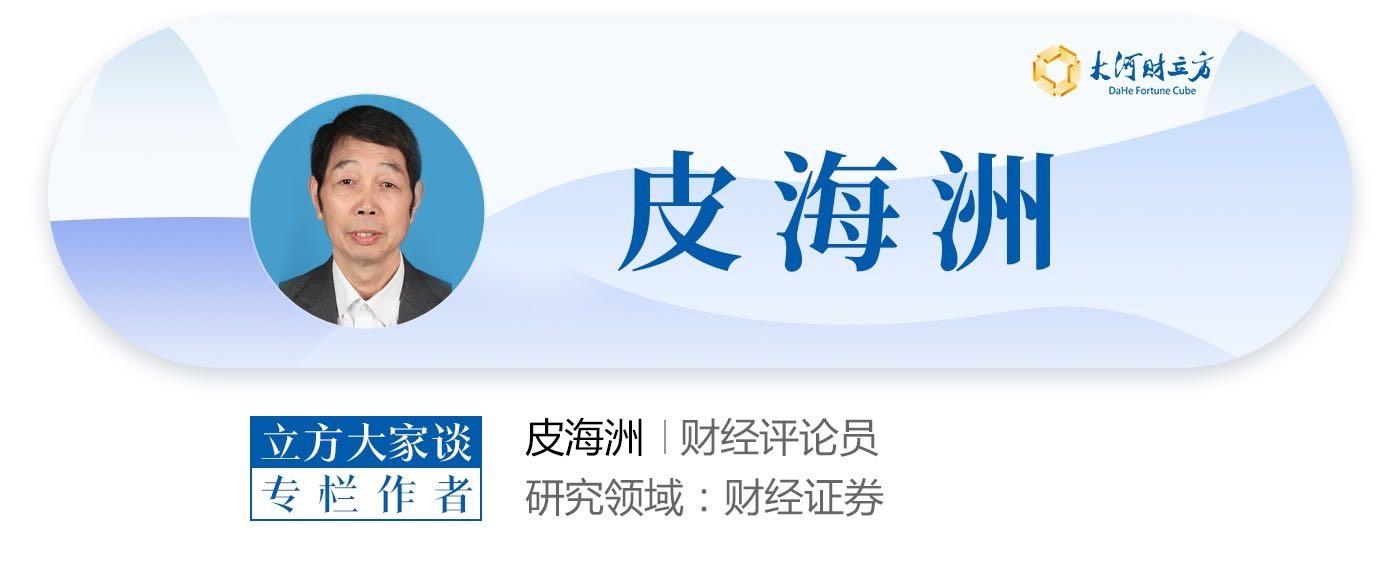
Pi Hai Chau | Cube everyone talks columnist
In order to further improve the quality of information disclosure in prospectuses and provide a solid foundation for steadily promoting the reform of the registration system in the whole market, on October 29, the CSRC solicited market opinions on the Guiding Opinions on Improving the Quality of Information Disclosure in Prospectuses under the Registration System (Draft for Solicitation of Comments) (hereinafter referred to as the "Draft for Comments").
The reason why the CSRC wants to issue a "draft for comment" is obviously a targeted measure. The core of the registration system is information disclosure. The prospectus is the main carrier of information disclosure at the stage of stock issuance under the registration system, the basic basis for investors to make value judgments and investment decisions, and the most core and important legal documents in the process of enterprise issuance and listing. Therefore, the information disclosed in the prospectus should be true, accurate, complete, concise, clear and easy to understand, and there must be no false records, misleading statements or material omissions.
Judging from the relevant situation since the pilot registration system of the Science and Technology Innovation Board and the ChiNext Board, although the quality of information disclosure in the prospectus has improved, there are still problems such as lengthy, insufficient pertinence, excessive compliance information, weak investment decision-making role, and concise language, which not only reduces the readability of the prospectus, increases the difficulty of investor screening and use of effective information, but also affects the cognition and evaluation of the reform of the registration system by all parties in the market to a certain extent, and affects the function of resource allocation in the capital market. Some prospectuses are even shoddy, so much so that they are returned by the exchange for rewriting. Such shoddy prospectuses are obviously difficult to increase the transparency of information disclosure and become the basis for investors to make investment decisions. It is precisely because of this that there is the introduction of the "Draft for Comments".
Judging from the content of the "Draft for Comments", there are at least three major highlights. For example, highlight the significance and pertinence of the information disclosure in the prospectus, so that the language is simple and plain, the content is clear and intuitive, and the length is concise and concise. Avoid situations where lengthy, insignificant information floods the prospectus. Another example is to improve the reasonable trust system, further clarify the boundaries of the responsibilities of intermediary institutions, let intermediary institutions fulfill their responsibilities, and conscientiously carry out the writing and preparation of prospectuses in accordance with the division of duties. Another example is to strengthen the pursuit of responsibility, make full use of legal resources, and take measures to deal with acts such as shoddy prospectuses in accordance with the law to ensure that various measures to improve the quality of information disclosure in prospectuses are implemented.
In addition, for those who do not constitute information disclosure fraud, but the preparation of the prospectus is rough, the content is unclear, the logic is confused, and the understanding of investors is seriously affected, the "Draft for Comments" shall take regulatory measures or self-discipline sanctions against the sponsor and securities service institutions in accordance with law, such as ordering corrections, supervising conversations, and issuing warning letters.
It can be asserted that once the "Draft for Comments" is implemented, it will have a positive significance for improving the quality of the IPO company's prospectus, and the quality of the IPO company's prospectus will be greatly improved as a result. However, since it is a "draft for comments" and is open to the public for comments, of course, it is hoped that the officially released "Guiding Opinions on Improving the Quality of Information Disclosure in Prospectuses under the Registration System" will be more perfect. To this end, I suggest that in the issue of cracking down on shoddy prospectuses, the management can use three "killer skills".
First, for shoddy prospectuses, exchanges as the auditing authority can directly return the IPO applications of related companies. Companies that return to their IPO applications because of shoddy prospectuses may not resubmit their IPO applications for one year. In this way, the prospectus of an IPO company when submitting an IPO application naturally does not dare to be shoddy.
Second, if the prospectus submitted by the IPO company is shoddily made, the sponsor representative should be strictly investigated for responsibility. The shoddy prospectus written by the sponsor representative at least indicates that the sponsor representative is not doing its duty. Based on the importance of the prospectus in the IPO process, this malfeasance of the sponsor representative is inexcusable and must be severely punished, so it is necessary to disqualify the sponsor representative. Since the sponsor representative does not cherish the rice bowl in his hand, then simply let such a sponsor representative not eat the bowl of sponsorship.
Third, if behind the shoddy prospectus involves fraud and other violations of laws and regulations, the legal responsibility of the relevant responsible persons will be strictly investigated in accordance with the law. For example, if the sponsor issues a letter of sponsorship with false records, misleading statements or major omissions, or fails to perform other statutory duties, it shall be ordered to make corrections, give a warning, confiscate the business income, and impose a fine of not less than one time but not more than ten times the business income; if there is no business income or business income is less than one million yuan, a fine of between 1 million and 10 million yuan; if the circumstances are serious, the sponsorship business license shall be suspended or revoked. According to this strict law enforcement, the sponsoring agency will not catch the chicken and not reverse the erosion of rice, and naturally try to avoid the occurrence of violations of laws and regulations.
Editor-in-charge: Liu Anqi | Review: Li Zhen | Director: Wan Junwei